Post-rock roundtable: 3 bands, 5 guitarists, 1 interview
Players from Russian Circles, This Will Destroy You and Maybeshewill share their thoughts
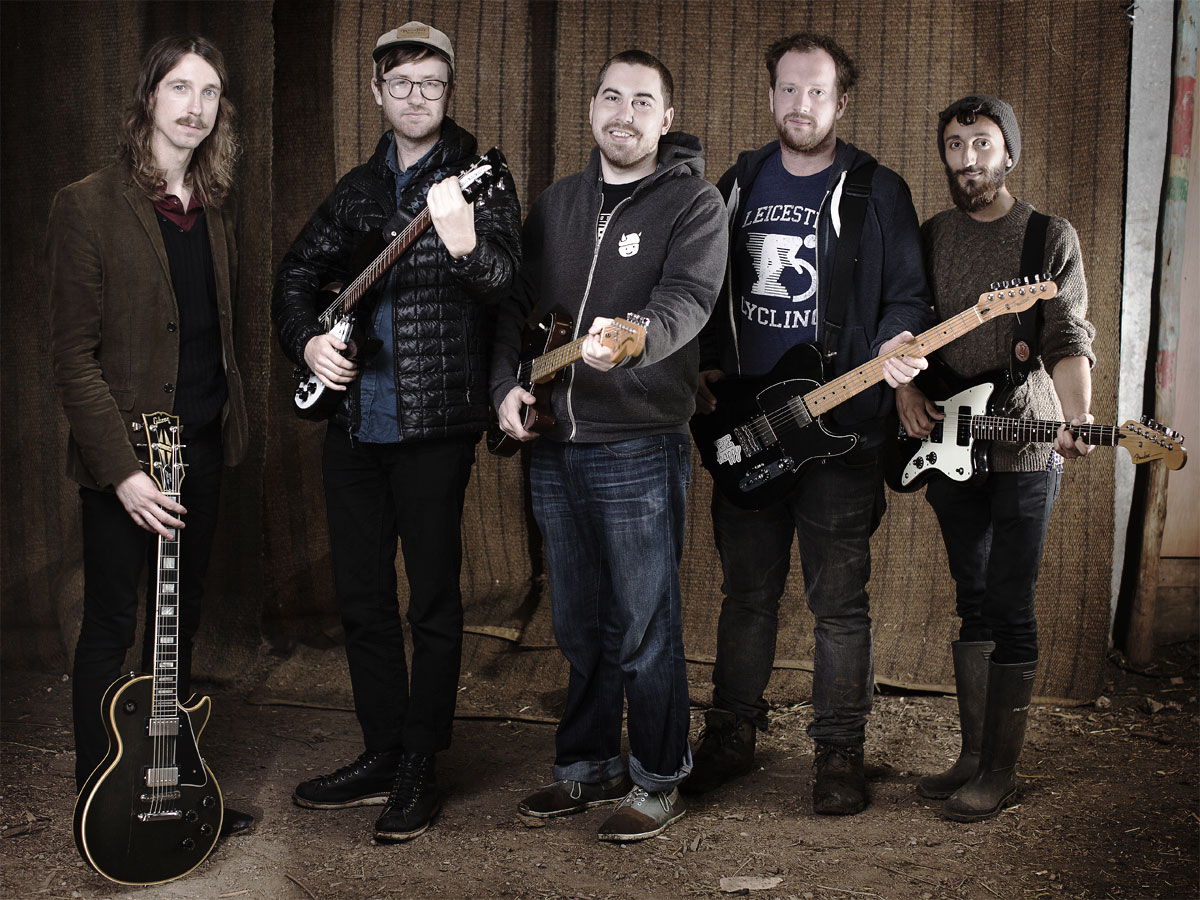
Introduction
Five guitarists from three premier instrumental bands - Russian Circles, This Will Destroy You and Maybeshewill - share their views on pedals, melody above all and the future of post-rock...
Divert your focus from attention-hogging frontmen, and you’ll find a world of instrumental guitar talent - and this year’s ArcTanGent festival hosted some of the biggest names in the genre.
We caught up with five guitarists from three of the headline bands: Russian Circles delivered loop mastery and apocalyptic riffs, This Will Destroy You served up widescreen reverbs and crushing crescendos, while Maybeshewill traded in crunchy rhythms and intricate lead lines. Each brought plenty of opinions to the round table, too...
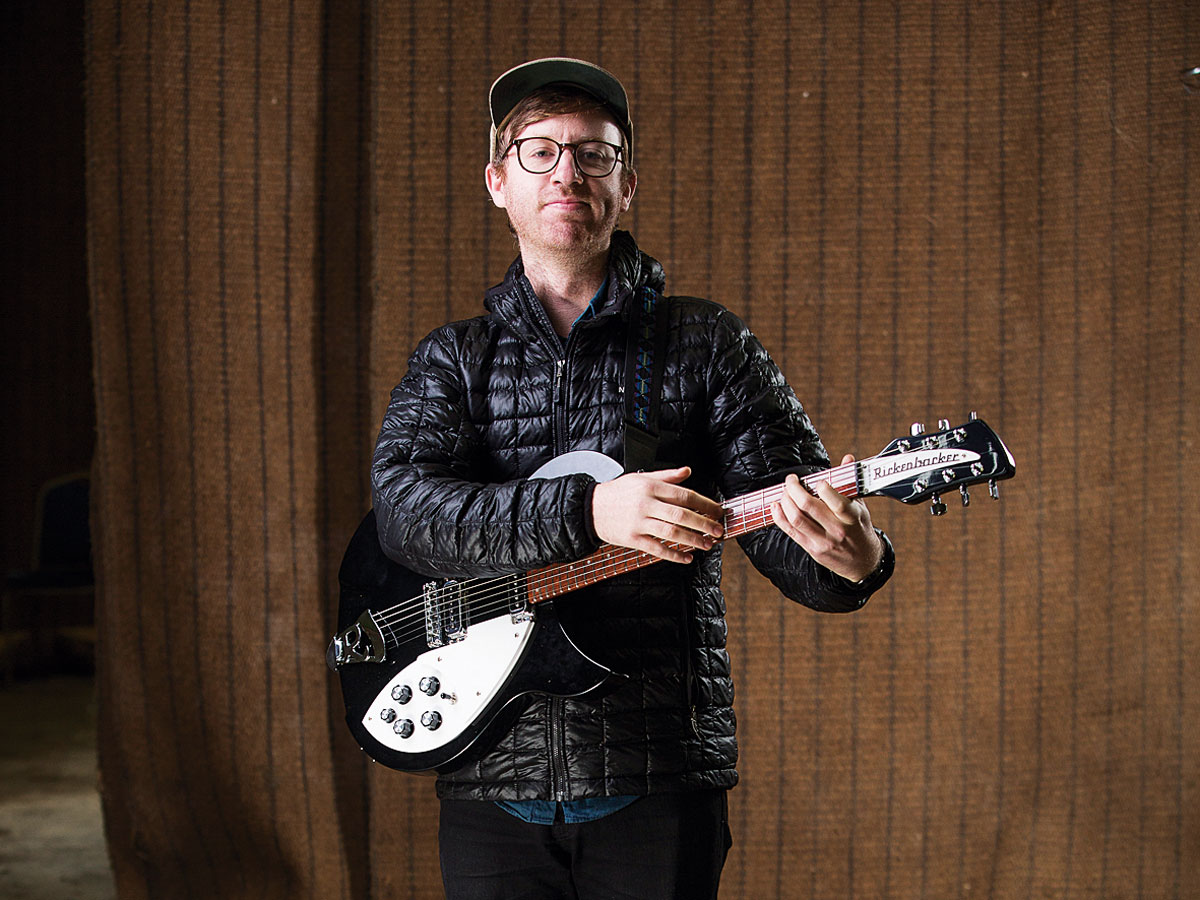
Getting started
Who was the first guitarist or band that inspired you to play instrumental music?
Robin Southby (Maybeshewill): “For me, it was Hendrix - he was the first guy that made me want to pick up the guitar. Instrumentally, some of his stuff has drawn-out instrumental sections, which inspired me. He was the reason I got a Strat, initially.”
Jeremy Galindo (This Will Destroy You): “It was my older brother; he got one, I was jealous, so I got one, and tried to be better than him at it. [Film composer] Gustavo Santaolalla probably got me started into instrumental.”
Mike Sullivan (Russian Circles): “I loved Van Halen as a kid, so that got me into guitar right away, then I guess a combination of Mogwai and Don Caballero got me started on the instrumental thing.”
Chris King (This Will Destroy You): “I was pretty into Metallica when I was in middle-school, so that probably got me started playing guitar. Instrumental music-wise, I dug Godspeed You! Black Emperor when I was in high school.”
John Helps (Maybeshewill): “I was a Smashing Pumpkins guy, which I now regret.” Jeremy: “We all were.”
Mike: “They had some untouchable stuff.”
John: “A few crimes later on, though.”
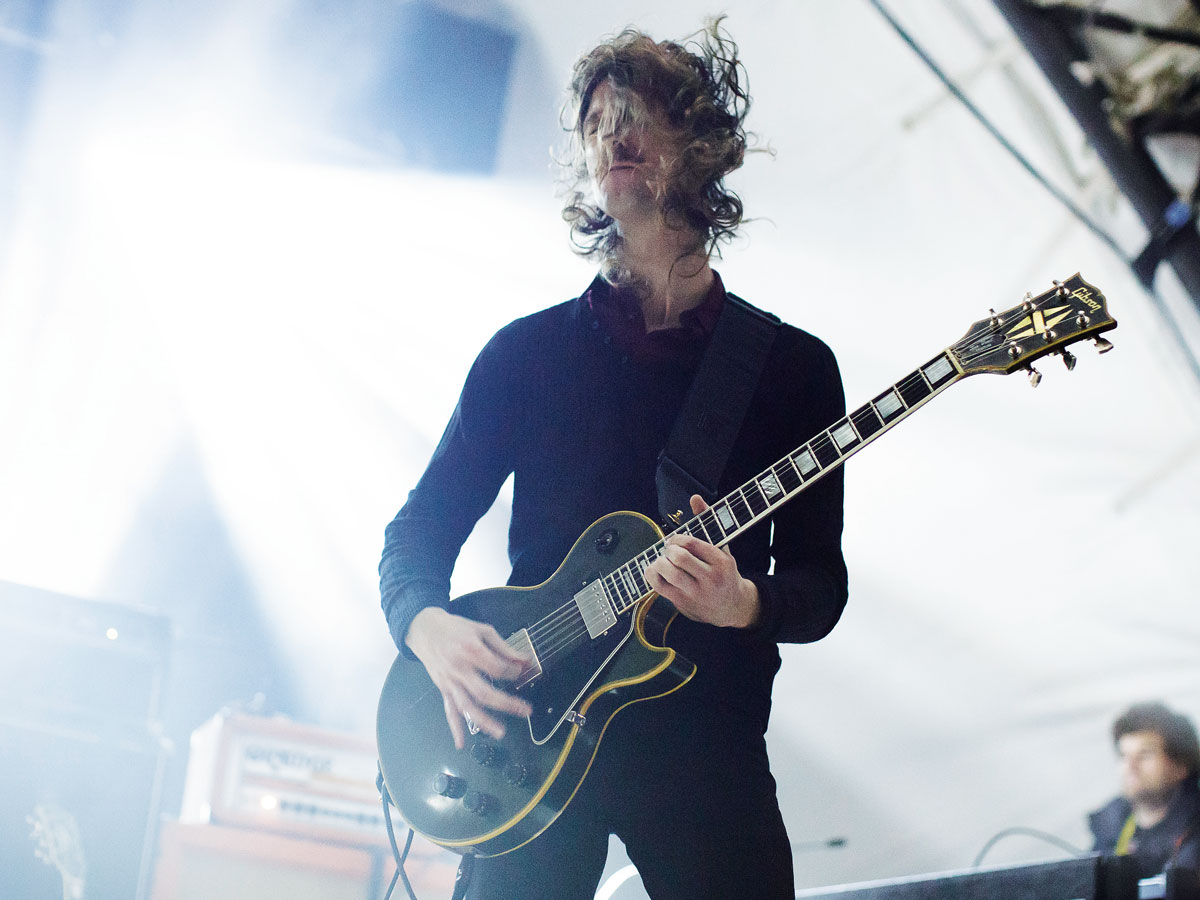
Post-rock rises
Have you seen a change in the general popularity of instrumental music?
Jeremy: “Yeah, most definitely. I think it’s grown a lot - sometimes not for the better, sometimes for. And it’s been really interesting to see how much it’s grown; especially here in Europe - we got our start in Europe way before we did in the States.”
John: “It seems to be a very international thing - it doesn’t seem to be restricted to any particular countries.”
Robin: “The beauty of instrumental stuff is it breaks down the language barrier, so anyone can do it and connect with people immediately.”
What advice would you give to guitarists who want to start an instrumental band?
Mike: “Less is more. Let there be a catchy groove or a melody. Don’t do too much; that’s boring. No-one wants to watch someone just play notes to satisfy themselves. An instrumental band shouldn’t be any different to a band with a vocalist, I feel - that’s not a huge line in the sand. There should be a hook, something catchy, and move on - the song should speak to you, no matter what, with lyrics or without.”
Chris: “There isn’t a magic pedal that’ll get what you need. I feel like it lies in the song.”
Jeremy: “Yeah, melody is everything.”
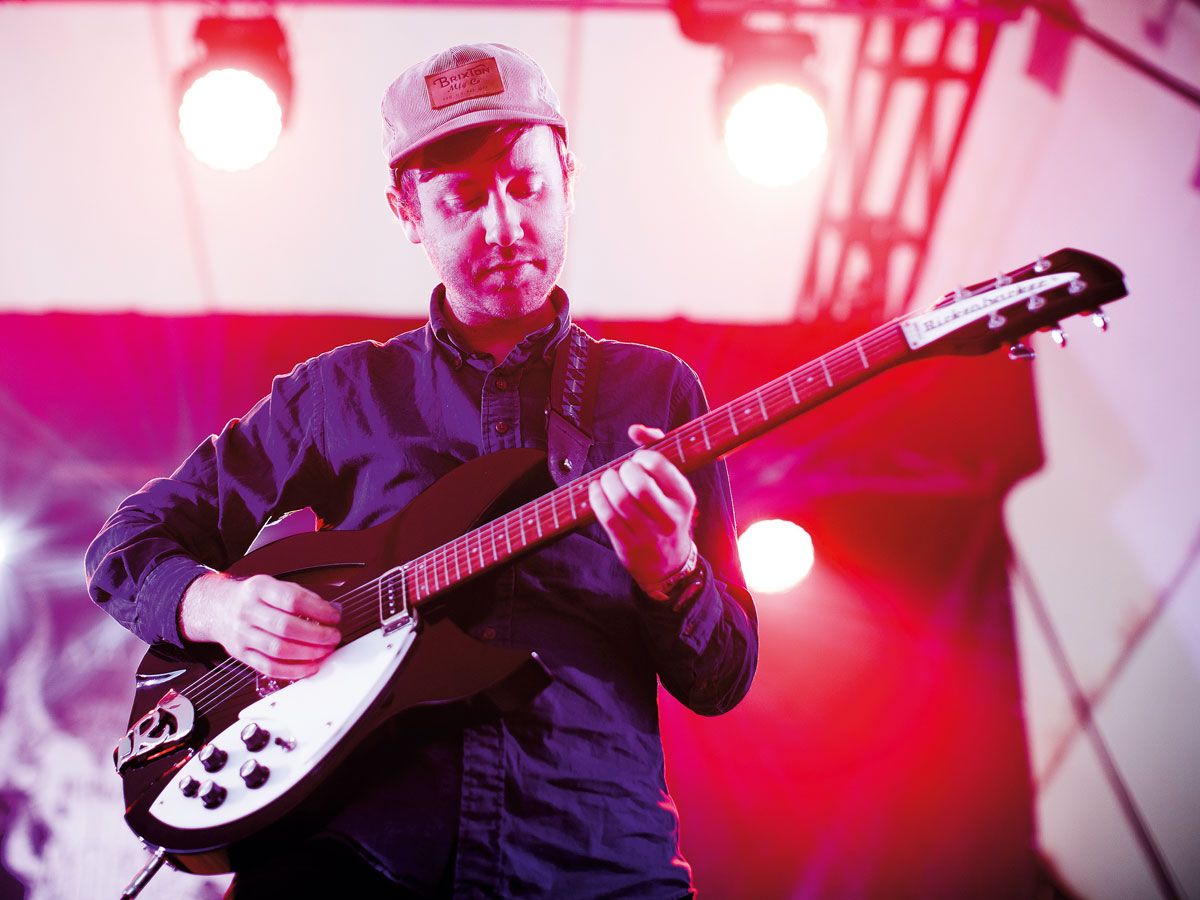
Six-string sidekicks
What guitars are each of you playing?
Chris: “A Rickenbacker 330.”
Jeremy: “I play a Tele Deluxe.”
Mike: “Les Paul Custom.”
Robin: “At the moment, a Fender Blacktop Jazzmaster.”
John: “Blacktop Telecasters.”
What do you look for in your guitars?
Mike: “I wanna look good naked with it - it will distract from my weird moles and bad tattoos.”
Jeremy: “I am a serial monogamist when it comes to guitars - I don’t have a backup; I only play one, so I don’t look any more. I’m married. You just get used to one, then everything else feels weird.”
John: “I’d like one that didn’t keep breaking. Every guitar I’ve ever had just breaks.”
Robin: “He just sweats and destroys the electronics.”
John: “I have to empty it out at the end of the show.”
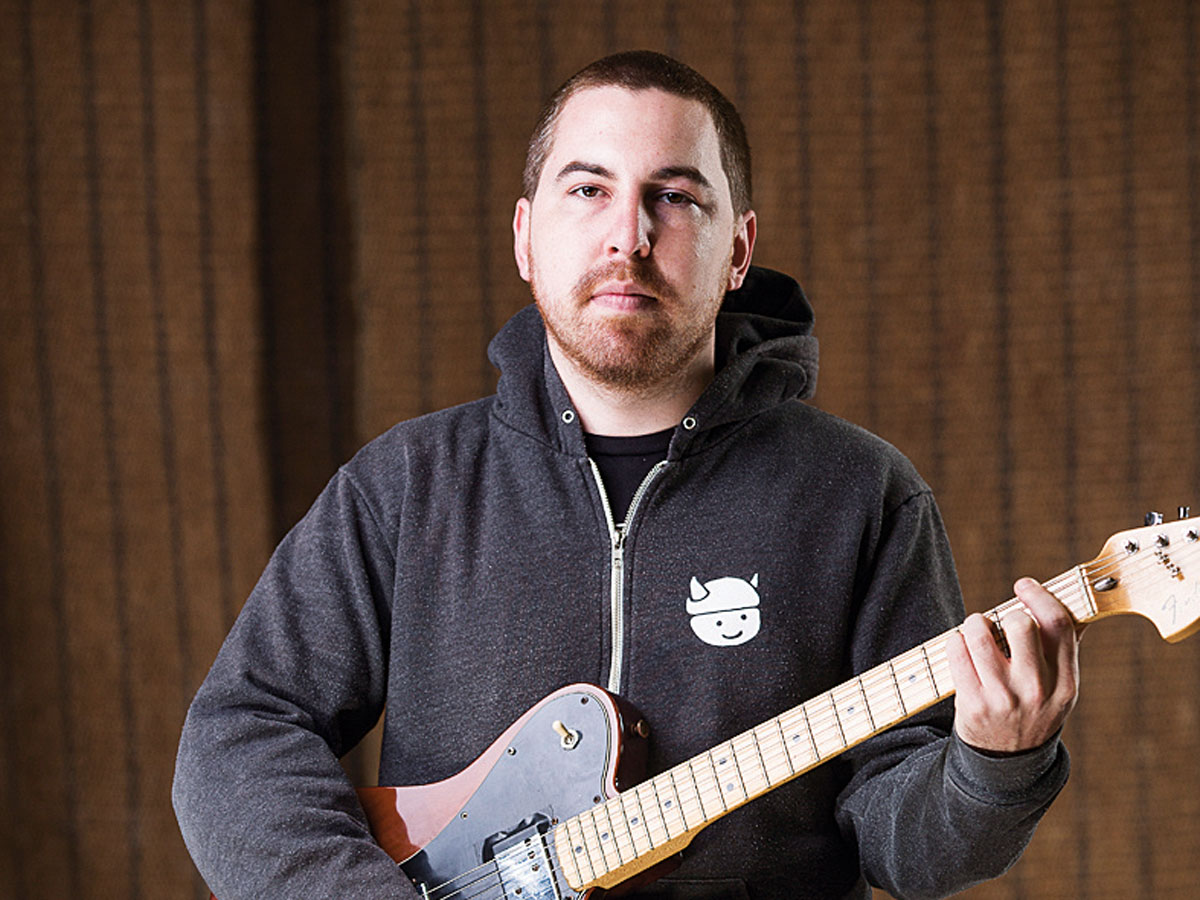
Post-rock's footprint
Post-rock is known for its stompbox abuse; what are the essential pedals in your rigs?
Chris: “The Eventide Space for reverb and the [Strymon] El Capistan for tape echo.”
Jeremy: “I just got a [Mr Black] SuperMoon Chrome reverb, which I’m falling in love with, and the Echo Dream 2 from Death By Audio, that’s been getting a whole lot of use as well. There are too many, but you really just need a good delay and good reverb.” Jeremy: “Delay, reverb and almost any distortion you can make work.”
Mike: “My ’board’s mainly distortion pedals and gain pedals. I use the Akai Head Rush for live looping, so that’s a go-to. I’ve tried a million loopers, but I need that one just to get through a set. With the Mesa[/Boogie Tone Burst and Flux Drive] distortion pedals, I’m finally happy with distortion after years of not finding what I wanted to hear. The El Capistan pedal’s awesome; that’s blown me away. Everything else can change, but the looper’s the most important one.”
Robin: “I used the [Electro- Harmonix] Holy Grail for years for reverb, but they just kept breaking - the old EHX pedals are just a bit temperamental sometimes, so I’m using a TC [Electronic] Hall Of Fame.”
John: “I just discovered the Mr Black Eterna, which is a reverb, but it does the crystallise-y top thing, which is pretty cool.”
Jeremy: “I really want to get one of those. They’re great.”
John: “Yeah - I paid so much import tax, though.”
So, delay and reverb are the key pedals for all of you?
Mike: “Delay, definitely - that’s almost a joke at this point for all of us, I assume.”
Chris: “It’s the core, but it’s interesting delving into pedals that modulate the sound; that’s something I’m more interested in.”
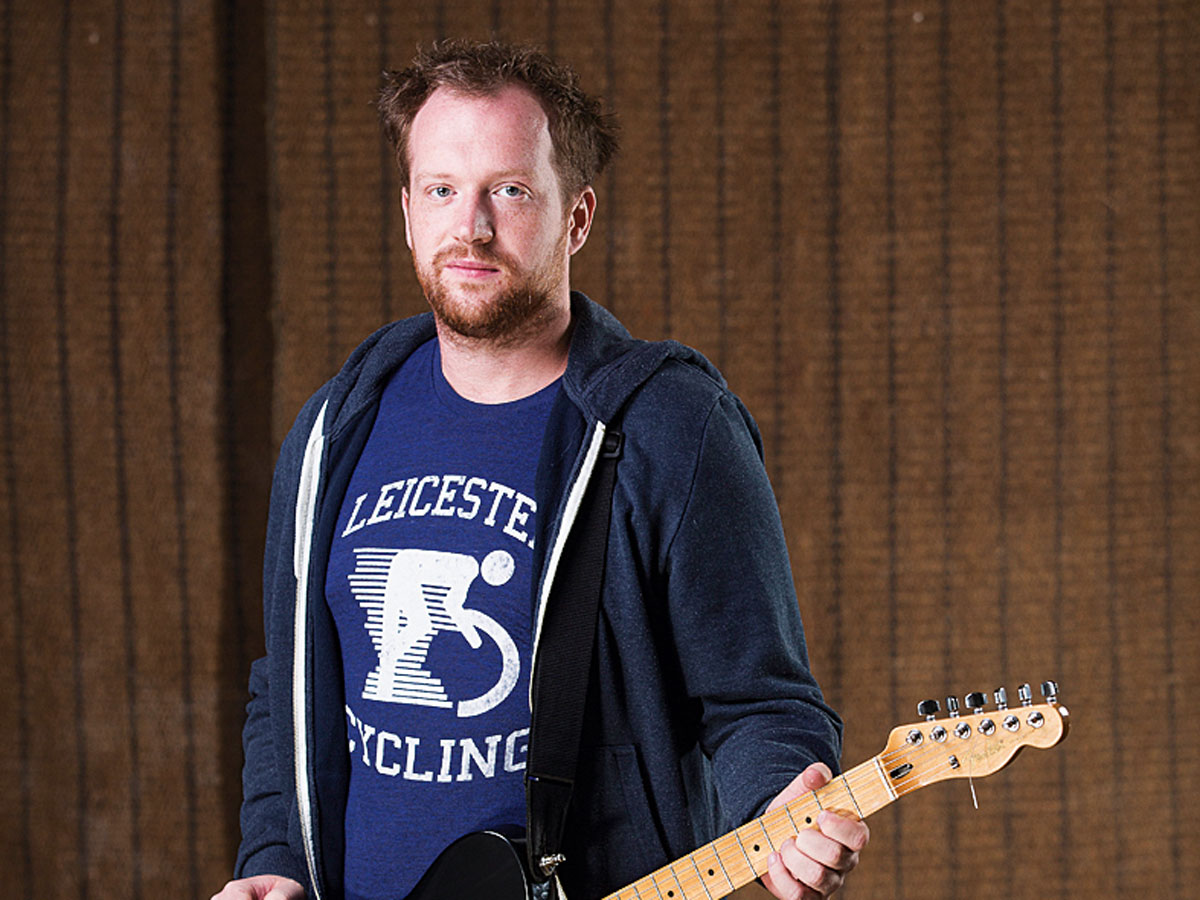
Stompbox stigma
Do you think there’s a stigma against post-rock guitarists?
Robin: “There is a bit of a joke that you just have to have a delay and a reverb and you can be in a post-rock band.”
Jeremy: “It’s mostly the tremolo picking, I guess.”
Robin: “I think you just have to be more creative than just those things.”
Mike: “And none of this matters. All this gear we use, they’re useful tools, but it all still comes from the catchy melody that we were saying earlier. We all have preferences for all this, but that’s not essential, you know. Any delay will end up working; it’s getting the point across.”
Chris: “There’s definitely been music that I’ve loved, and I’ll talk to someone and be amazed what they were using to make it. They were using, like, an old DOD distortion pedal or something that sounds like shit, and made it sound amazing.”

Amp'd up
What amps are you running?
Jeremy: “We both use a Music Man HD-130.”
Mike: “I use Verellen amps: the Meatsmoke, which is a louder, high-watt amp and a Loucks, which is a 100-watt guitar amp, and they’re just really well-made amps you can turn up very loud without getting too muddy. I don’t need much for an amp - just a loud, clean sound. All the grit comes from the pedalboard, so those amps excel; the more I turn them up, the better they sound.”
Robin: “The [Marshall] JCM800 I’ve used for years, which actually belongs to John, but it’s just a great, workhorse amp; you can crank it and it sounds great.”
John: “I use an Orange Thunderverb 200 - it’s pretty loud, and has a nice clean.”
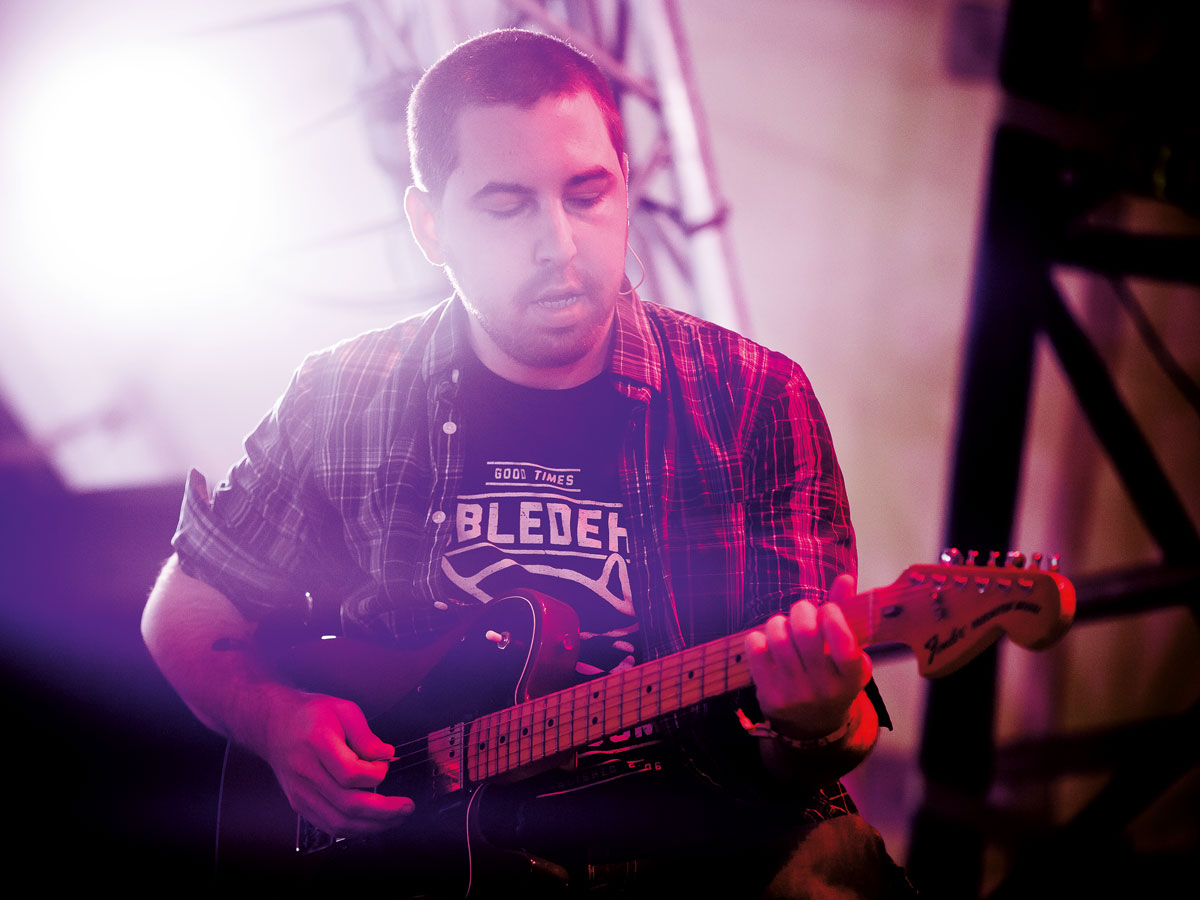
Keys to success
Maybeshewill and This Will Destroy You, you’ve incorporated keyboards into your sound; how does this affect your roles?
Robin: “Some of the melodies in what we do are written for keyboards, but we sometimes double them with guitars to hammer home the point. So, me and Matt [Daly], the keyboardist, sometimes share little melody parts.
"John usually provides the sort of beef behind things, chord-wise and stuff. I take some of the leads and the melodies, and John is more the rhythm guitarist. We’re traditional in that sense.”
Jeremy: “It’s been interesting with Donovan [Jones], our bass player, who does keys as well; he’s added a lot to the melodies. He’s trained a little bit in jazz piano, so I’ve gotten very excited many times when he changes a root note of a melody that I’m playing.”
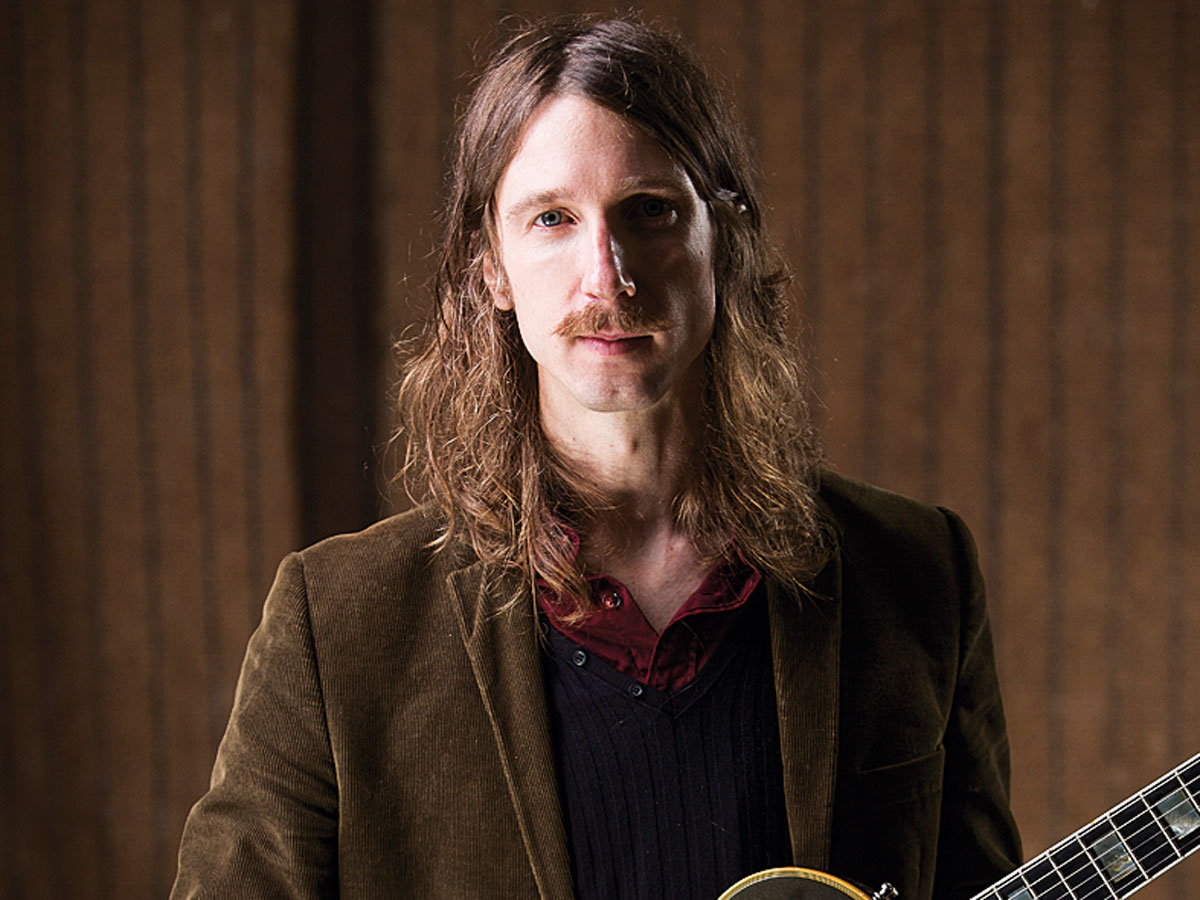
Going it alone
Mike, as the lone guitarist in Russian Circles, how do you create such a huge sound?
Mike: “I have a lot of help from Brian [Cook], our bassist - he’s awesome at taking care of the low end, so it gives me room to fill up the higher frequencies, so there’s a fair amount of looping, and that helps.
"It’s simple, but that frees up things where I can get away from: ‘Okay, that’s taken care of’ - the low end also on guitar as much as the bass - and as long as it’s not too muddy, I have some freedom to work within that.”

Defining the undefinable
What does the term ‘post-rock’ mean to you?
Mike: “Post-rock is a funny thing. 10 years ago, there were bands like Múm and Sigur Rós and Tortoise, and it was all over the map. I’m sure all of us have a different idea of what it is.
"I feel like it used to be more out there, with different instrumentation and not just a rock band jumping out of the norm of song structure and being instrumental. But to me, it doesn’t mean a whole lot, to be honest, but not in a bad way.”
Robin: “We never set out to be post-rock; it’s just because we did instrumental stuff, it has sections that kind of sound like certain bands - Explosions In The Sky, Mogwai - we get lumped in with that scene. But it’s been beneficial for us, so we’re not really that averse to it - if people want to put that name to it, then that’s fine.”
Jeremy: “If it brings people in to listen to your music that might not have heard it before, then, yeah, label it what you want: we’re gonna write the way we wanna write. Nobody here’s looking to make this genre-specific album.”
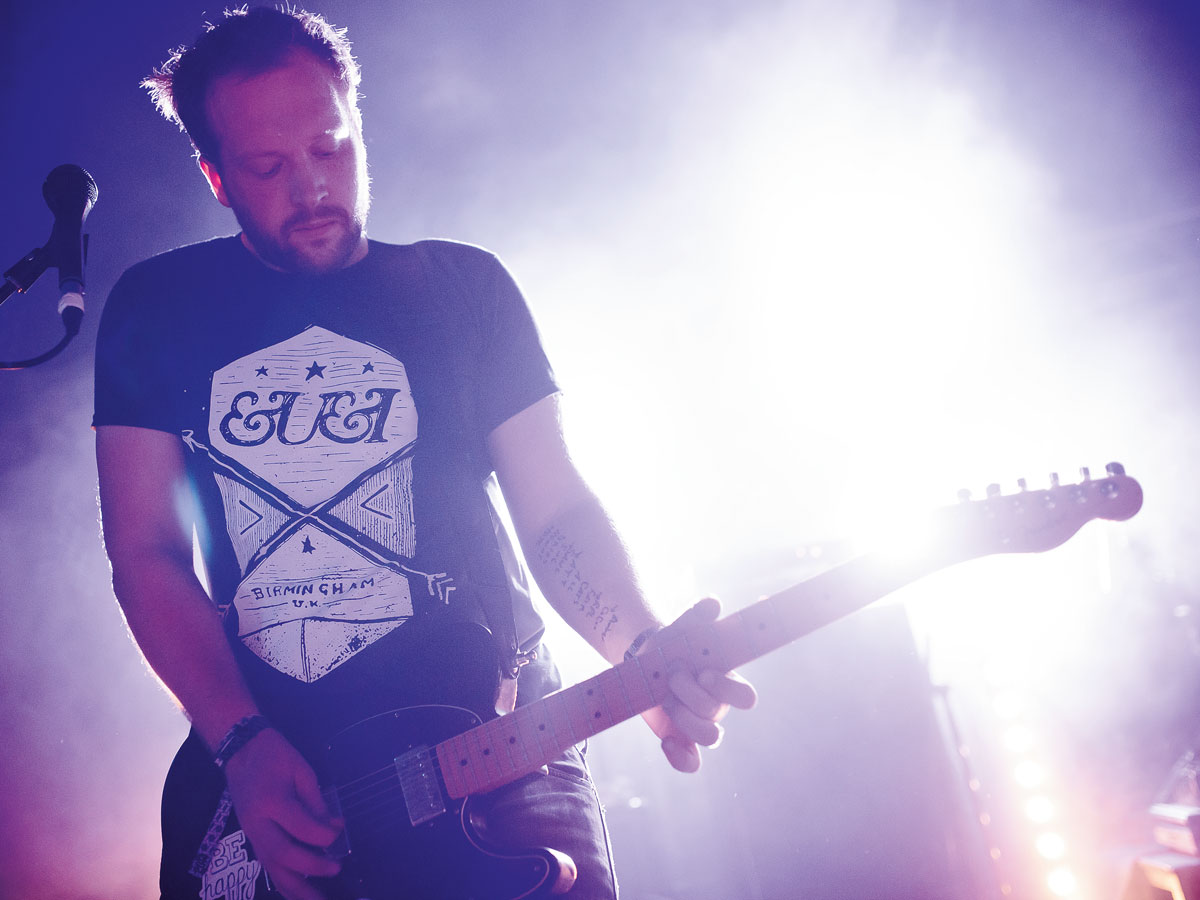
Shirking the singers
Has being an instrumental band presented any challenges?
Jeremy: “Yeah, the people who walk up to you after every show and ask if you need a vocalist.”
Robin: “Everyone gets it.”
Chris: “Or: ‘You’d be a lot better if you had a singer.’ I love that one.”
Mike: “Back in the MySpace days, someone was like, ‘I set up a page and added vocals to your song for you.’ It was called Anthony’s Russian Circles Project, and the song was called The Murder - Carpe was the song, but he called it The Murder - and it was about raping and killing a girl. I was like, ‘That’s why we don’t have vocals.’”
Jeremy: “We get a lot of people sending in tracks with vocals on, and we’ve joked about releasing an album of our favourite ones .”
John: “We’ve never had that - no-one’s ever done that for us.”
Jeremy: “It will happen!”
John: “I’m sort of jealous.”
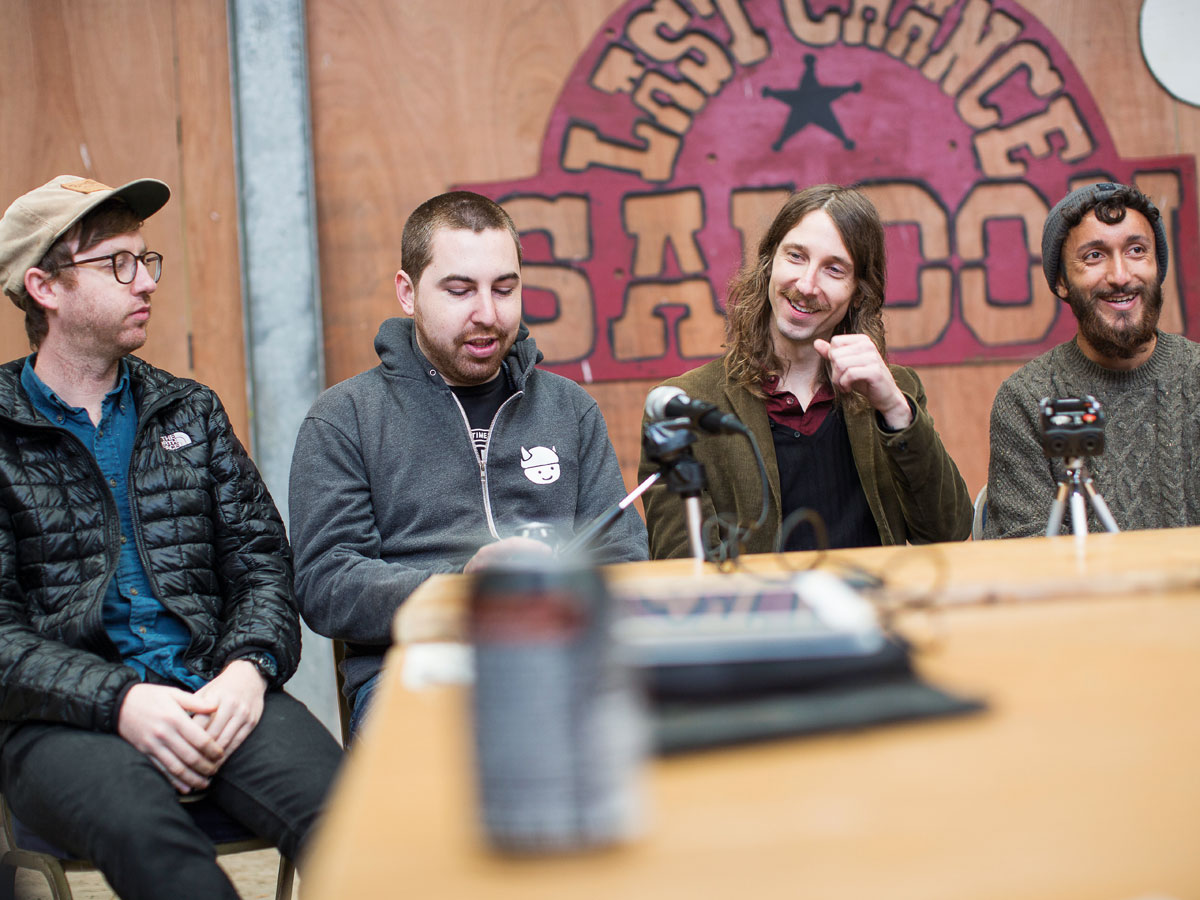
The future
What do you think the future holds for instrumental rock?
Mike: “It’s had a good footing for a little bit, and it’s just going to keep going. Back in the 70s, krautrock is overlooked as far as instrumental music - that didn’t get me into it, but the more I’m a fan of this type of music, the more I go back and research all those great bands.
"Eventually, they’ll be tied together with the modern instrumental bands. The post-rock scene will acknowledge what has happened in the past, and it’ll just keep growing.”
John: “Every so often, in an interview, someone will ask us how we feel about the death of post-rock - apparently, the genre’s dying out and no-one’s told us. A lot of the bands are so different, I don’t know how you can say that.”
Robin: “It seems to be creeping over into - not necessarily the mainstream - but film soundtrack stuff. There are a lot of bands that were termed post-rock a few years ago, that would soundtrack a trailer or a key moment in a movie. That seems to be a lot more prevalent these days.”
Is soundtrack work something you would consider?
Jeremy: “We’ve done a bit, and we hope to do more. It’s where we wanna get - most post-rock bands would wanna get there, because it’s the best way to get paid!”
Mike is Editor-in-Chief of GuitarWorld.com, in addition to being an offset fiend and recovering pedal addict. He has a master's degree in journalism, and has spent the past decade writing and editing for guitar publications including MusicRadar, Total Guitar and Guitarist, as well as a decade-and-a-half performing in bands of variable genre (and quality). In his free time, you'll find him making progressive instrumental rock under the nom de plume Maebe.


